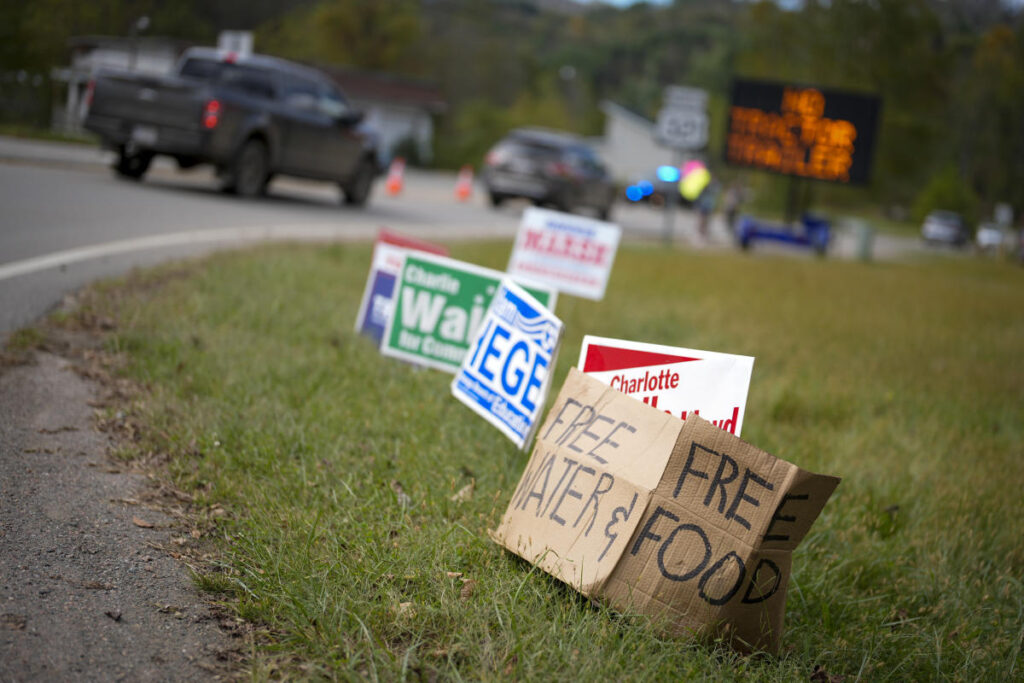In the aftermath of Hurricane Helene’s devastating impact on western North Carolina, the state’s election board has moved swiftly to adapt voting rules to ensure that residents can still participate in the upcoming elections. The North Carolina State Board of Elections unanimously approved an emergency resolution in response to the severe disruptions caused by the hurricane, which resulted in significant damage to homes, infrastructure, and polling locations. Recognizing the importance of Election Day scheduled for November 5, board officials emphasized their commitment to facilitating voting while ensuring that no individual is denied their right to cast a ballot due to logistical complications. Board chairman Alan Hirsch articulated the balance between maintaining standard election operations and responding to the challenges posed by the storm.
The resolution specifically addresses the conditions in 13 counties in western North Carolina, where polling places and mail services were heavily impacted by the hurricane. These disruptions include damage to buildings, inaccessibility due to washed-out roads, and the necessity to utilize some locations for disaster relief efforts. In light of these challenges, the board acknowledged that all county elections offices remained open, and executive director Karen Brinson Bell outlined the steps being taken to implement temporary voting facilities where needed. The severity of the storm’s impact on early voting sites has raised concerns, with approximately 10 such locations reporting significant issues.
Among the major changes enacted by the election board, the new resolution allows voters who were affected by Hurricane Helene to submit their absentee ballots directly to polling places operational on Election Day within their county. This is a shift from the previous regulations, where voters could only submit absentee ballots to early voting sites or their county elections board by the close of polls on Election Day. Furthermore, displaced voters can return ballots to elections boards in other counties by the same deadline, broadening the opportunities for ballot submission. The resolution also allows voters to personally pick up absentee ballots from their county elections office until the day before the election, which aims to reduce barriers for those still reeling from the storm’s impact.
Prior to the hurricane, absentee ballot distribution faced its own complexities due to a legal dispute regarding the inclusion of Robert F. Kennedy Jr.’s name on ballots after he suspended his presidential campaign. This led to a significant delay in the production of ballots, compounding the challenges presented by the hurricane. The emergency resolution now enables bipartisan county elections boards to make adjustments to Election Day polling places as well as early voting sites. Changes can include moving voters to alternative precincts, establishing out-of-precinct voting locations in neighboring counties, and setting up multiple voting sites within a single precinct to accommodate affected residents.
Communication has also been prioritized in the resolution, with county boards required to notify voters of any changes to polling locations by mail, in addition to sharing updates via local media, political parties, and county websites. With a potential shortage of poll workers on the horizon, the resolution permits counties to recruit election officials from other regions who are registered to vote in North Carolina. Furthermore, assistance teams may be deployed to emergency shelters, aiding voters in navigating the absentee voting process.
Despite appeals from civil rights groups to extend voter registration deadlines for individuals impacted by the hurricane, the emergency resolution did not include such provisions. Any potential adjustments to voter registration or additional measures will now be left to the state legislature when they reconvene to discuss disaster relief legislation. The North Carolina voter registration deadline is set for Friday, creating urgency for residents still dealing with the aftermath of the hurricane. In contrast, neighboring South Carolina has taken proactive measures by extending their voter registration deadline amidst similar disruptions, while officials in Georgia and Florida have indicated minimal election-related disruptions due to the storm. The State Board of Elections in North Carolina is poised to evaluate further needs and actions as the situation unfolds and impacts continue to affect the region leading up to Election Day.

